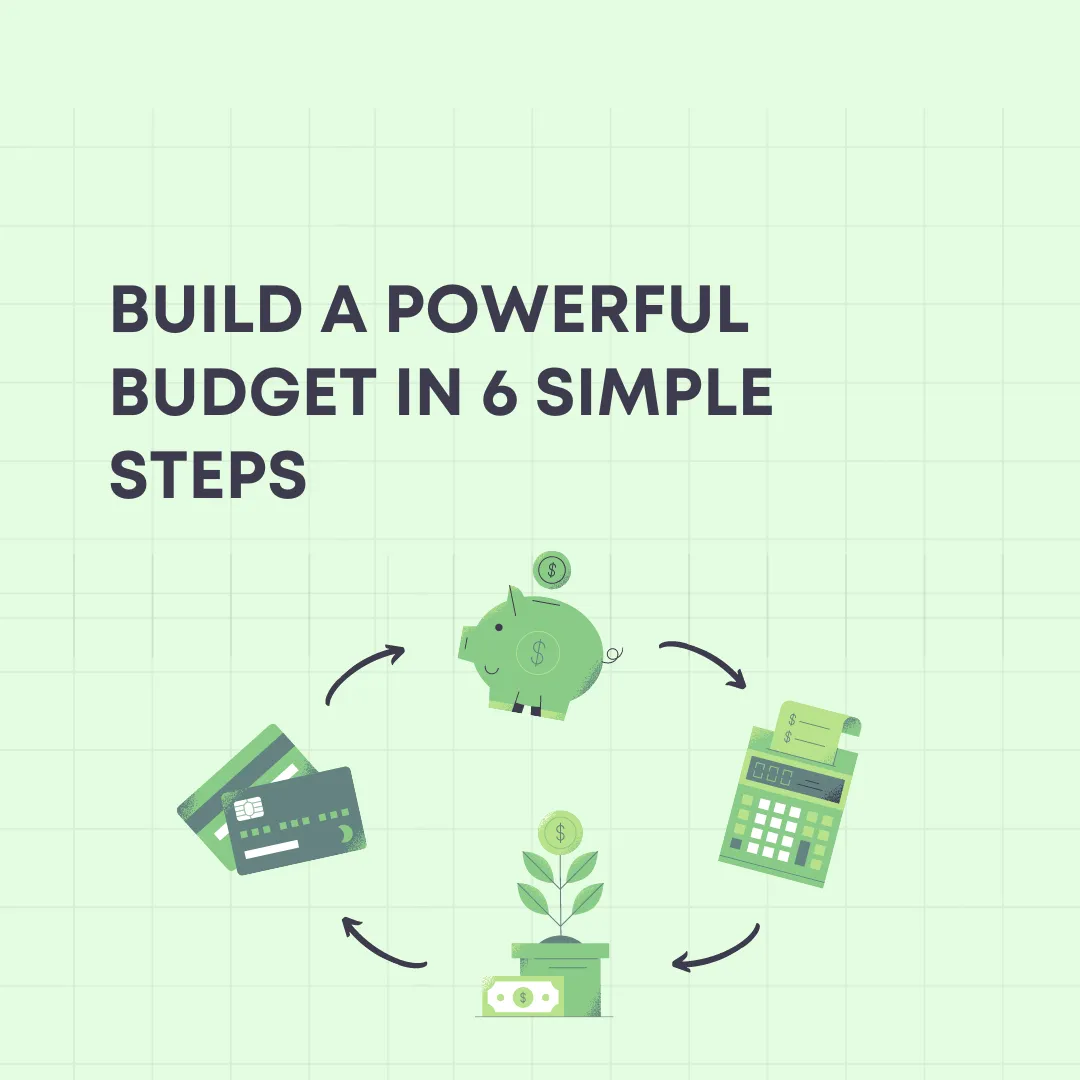
Build a Powerful Budget in 6 Simple Steps
“A budget is telling your money where to go instead of wondering where it went." — Dave Ramsey
Introduction:
Let's face it, the word "budget" often brings up feelings of restriction and deprivation, much like a strict diet that leaves you dreaming of everything you can't have.
It's no wonder many of us shy away from budgeting, associating it with endless columns of numbers and the painful process of cutting back on the joys of life.
But what if I told you there's a better way? A way to budget that feels liberating, aligns with your goals, and still lets you enjoy the pleasures of life.
This approach is all about intentionality, flexibility, and finding joy in your financial journey. Ready to transform your relationship with money?

Follow these steps and start practicing a new, empowering way to budget.
Step 1: Define Your "Why"
Before diving into the numbers, take a moment to reflect on why you want to manage your money better. Is it to travel more? Save for a dream home? Or perhaps to enjoy peace of mind knowing your finances are in order? Identifying your "why" provides motivation and direction, making the budgeting process more meaningful and aligned with your personal values.
Actionable Tip:
Write down your top three financial goals and why they matter to you. Keep this list visible as a reminder of what you're working towards.
Step 2: Embrace Flexibility
The key to a successful budget is flexibility. Life is unpredictable, and your budget should be able to adapt to changes in your income, expenses, and priorities. Instead of setting rigid spending limits, allocate ranges for different categories. This approach allows you to adjust as needed without feeling like you've failed.
Actionable Tip:
Review your budget monthly, adjusting categories based on your actual spending and changing needs. This keeps your budget realistic and manageable.
Step 3: Prioritize Joy
Yes, you read that right. Your budget should include room for things that bring you happiness. Whether it's a weekly coffee treat, a monthly dinner out, or saving for a vacation, intentionally including these joys ensures you don't feel deprived and helps you stick to your budget in the long run.
Actionable Tip:
Allocate a specific "joy fund" in your budget. Use this for anything that brings you happiness, guilt-free.
Step 4: Automate and Simplify
Take advantage of technology to make budgeting easier. Use apps or online tools to track your spending, set up automatic transfers to savings, and even divide your income into different "buckets" for expenses, savings, and fun. Automating these processes reduces the time and effort required to manage your money.
Actionable Tip:
Explore budgeting apps to find one that suits your needs. Set up automatic transfers to your savings account on payday.
Step 5: Celebrate Progress
Recognize and celebrate your financial achievements, no matter how small. Did you stick to your dining out budget this month? Great! Save a little extra towards your vacation fund? Even better! Celebrating these wins keeps you motivated and reinforces positive budgeting habits.
Actionable Tip:
Set up mini-rewards for reaching budgeting milestones. For example, if you stay within your grocery budget for the month, treat yourself to a movie night.
Step 6: Learn and Adjust
View budgeting as a learning process. There will be months when things don't go as planned, and that's okay. Use these experiences to gain insights into your spending habits and adjust your budget accordingly. The goal is continuous improvement, not perfection.
Actionable Tip:
Keep a budget journal. Note what worked, what didn't, and how you felt about your spending each month. Use these insights to refine your budgeting approach.
Budgeting doesn't have to be a dreaded task. By redefining it as a flexible, joy-filled process that aligns with your goals and values, you can transform your relationship with money. Start with understanding your "why," embrace flexibility, prioritize joy, automate where possible, celebrate your progress, and be open to learning and adjusting. With these steps, you'll find that managing your finances can be an empowering and even enjoyable journey.
Legal Disclaimer: This content is not financial advice and is for informational purposes only. Always consult with a qualified financial professional before making any financial decisions.
